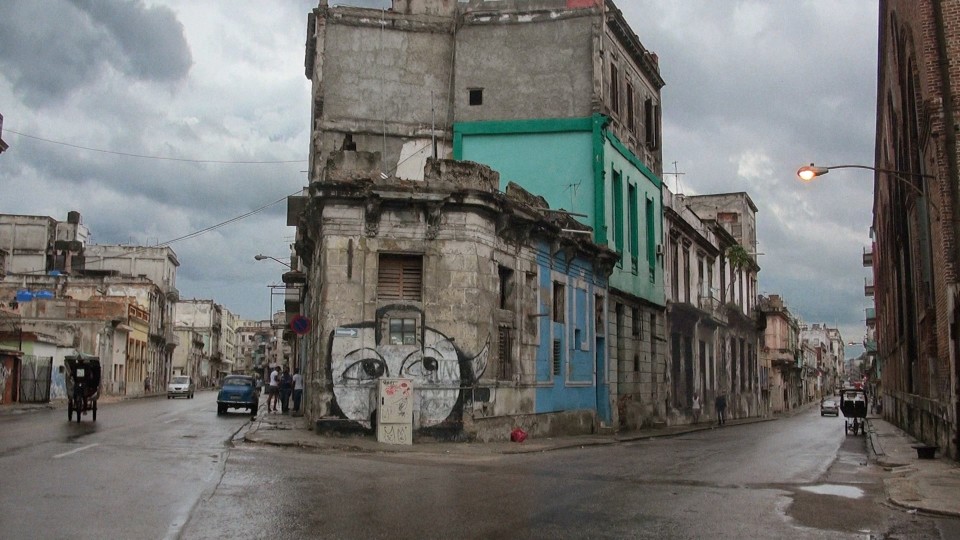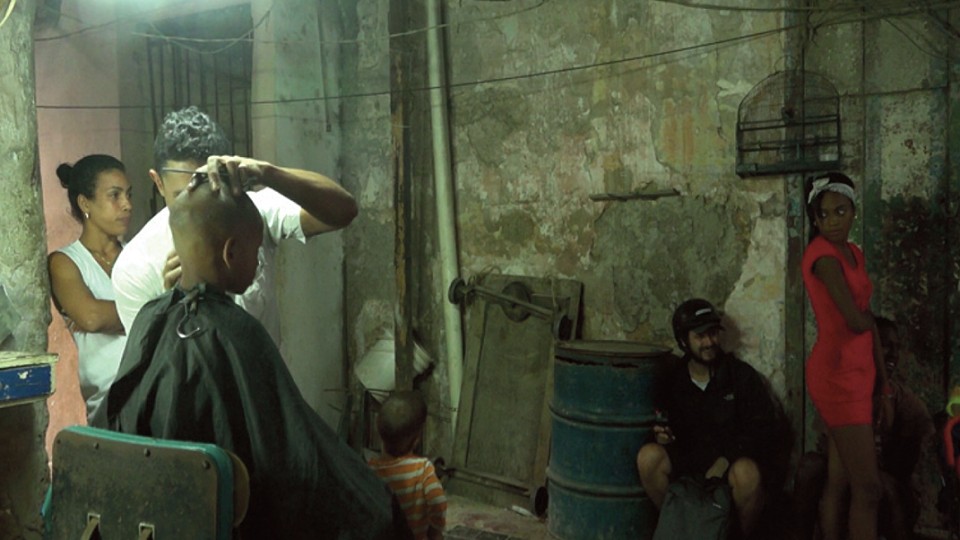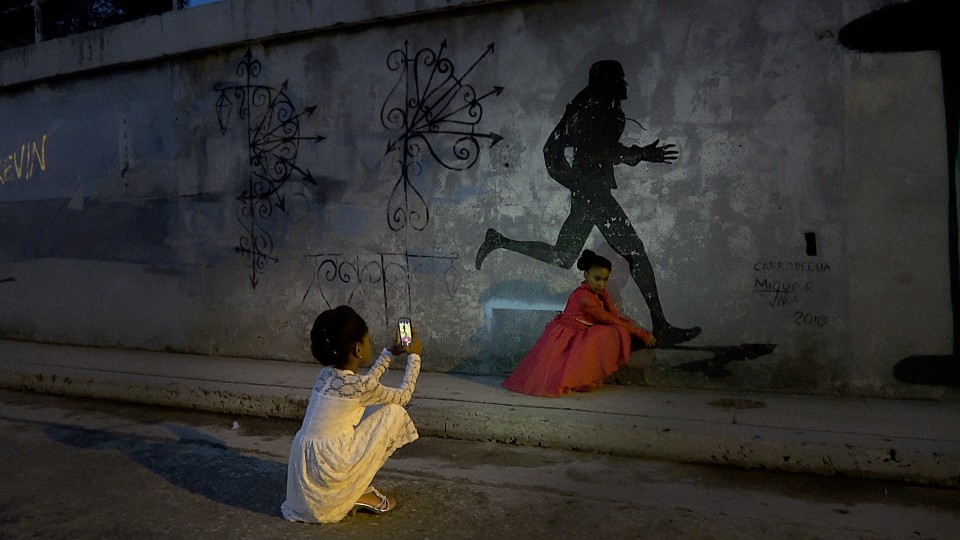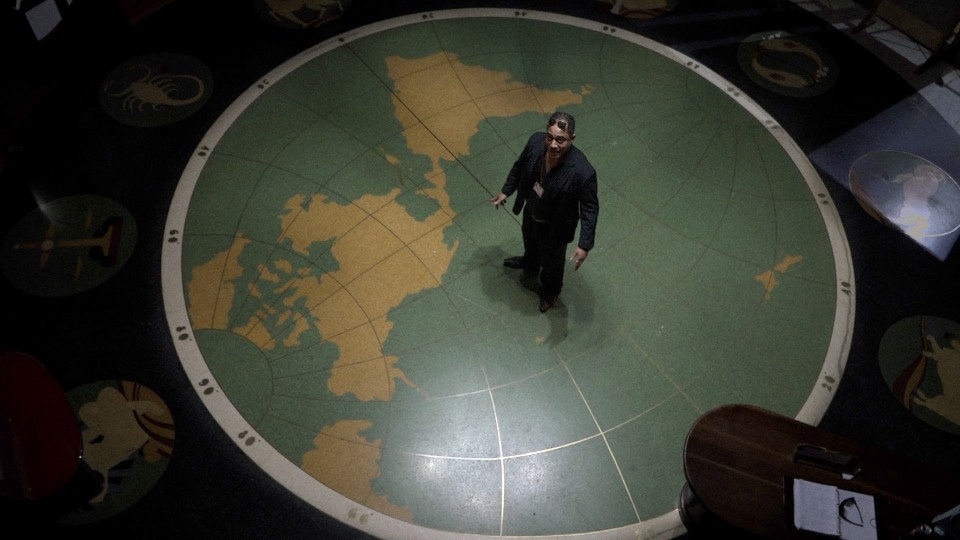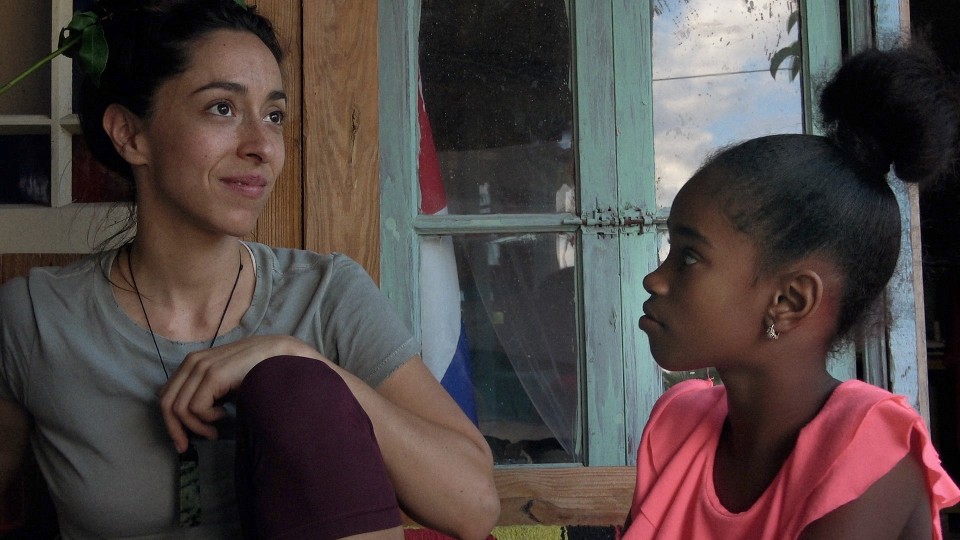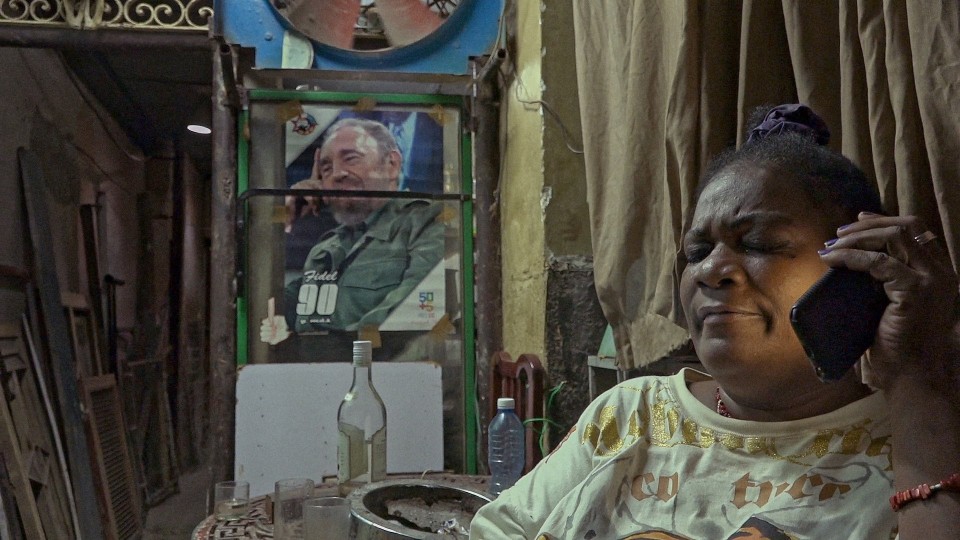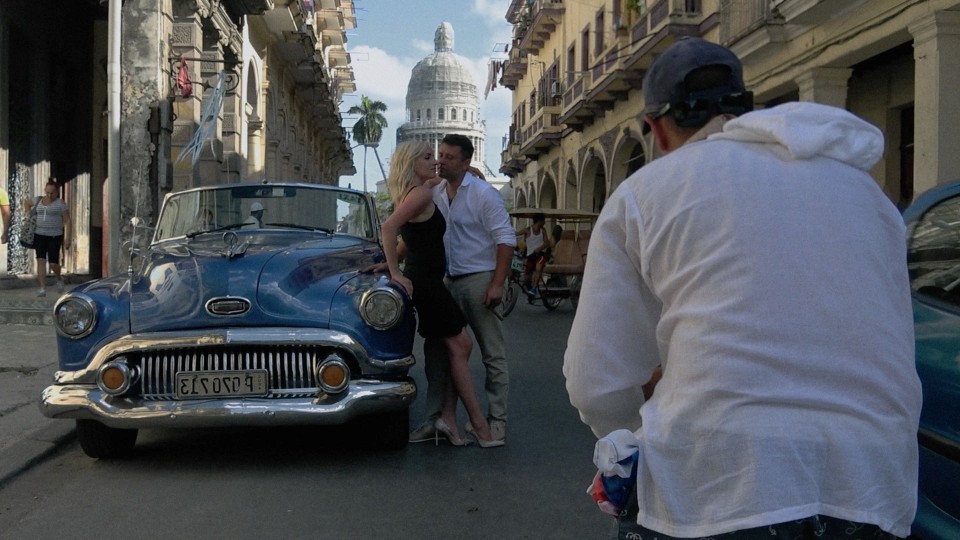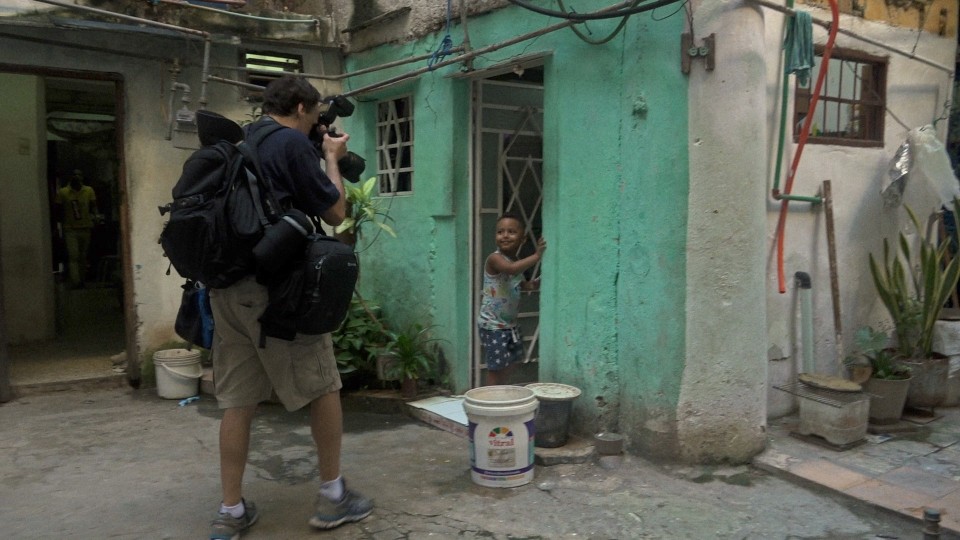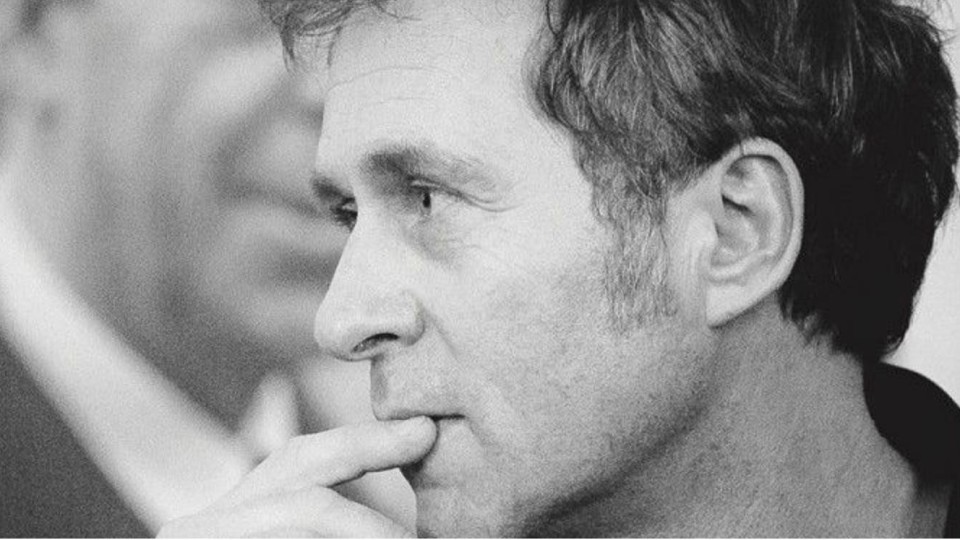Hubert Sauper‘s films are voyages of discovery in the global present. While he exposed the networks rooted in colonialism
from an African perspective in Darwin’s Nightmare and We Come as Friends, he has adopted a new focus in Epicentro. His new film is a multi-faceted essayist encounter with the Caribbean island of Cuba. In it the filmmaker explores the historical
background to the many connotations surrounding power and longing here, a story which proceeds in a spiral of liberation and
conquest. A dynamic which is driven in no small part by the powerful medium of cinema itself.
In your last two films, Darwin’s Nightmare and We Come as Friends, you attempted to reveal the complex geopolitical links
between the continent of Africa and the West which have resulted from colonialism. Which considerations brought you to the
Caribbean for Epicentro?
HUBERT SAUPER: The idea for Epicentro was originally not restricted to Cuba. My aim was to pursue a subject which I have been working on for a very long time:
the imperialist narrative. How do empires expand, and above all, how do they explain this to themselves? I was particularly
interested in the question of how the American Empire came into being in the first place. I discovered that the process was
based primarily not on military power but on soft power. The first successful step here was the Spanish-American War, a relatively
small war in physical terms, in the course of which the USA drove away the last European colonial powers from the Caribbean
and the Pacific. Immediately after the American Civil War the USA was preoccupied with its own concerns: nobody wanted another
war, especially not one at the other end of the world. But then suddenly new technology emerged which functioned on the level
of mass hypnosis: the cinema. It was extremely interesting to discover that the medium I myself work in was one of the main
factors which allowed the Western Empire to develop, and that this soft power has contributed to maintaining the existence
of this Empire for over a hundred years. That’s how I became interested in Cuba as a place where so many threads come together,
geographically as well as historically: Havana as the epicentre of the slave trade, the first colonial masters in America,
and the first cosmopolitan city on the planet, where native Americans, Europeans and Africans lived side by side.
Did your research begin outside Cuba?
HUBERT SAUPER: My original plan was to shoot the film in the Pacific, possibly in the Philippines. But I discovered from my research that
for half a century – from 1898 to the Cuban Revolution – Havana was a North American city on a tropical island. Another aspect
that interested me was a European invention: utopia. This concept gave rise to several variations, one of which is the American
Dream while another is the Cuban Revolution – and they aren’t contradictory. They both have their roots in the same fundamental
idea. For me, Epicentro is a film not about Cuba but about the incredible tailor-made construct we have built up to satisfy our needs in Europe and
the USA over hundreds of years, employing all methods of auto-propaganda – and by this I mean the cinema in particular but
also the classic information media. The DNA of our thinking is the product of a century of self-persuasion based on a value
structure conveyed partly by Hollywood, both consciously and unconsciously.
How do you respond, as a filmmaker, to this awareness of the manipulative power of images – of your own medium?
HUBERT SAUPER: My films are often described as documentaries, but I dislike the term because it includes the idea that I’m claiming to convey
a truth, and I regard that as disturbing. I prefer the term “non-fiction film”. You can’t shoot a film in Cuba over several
years and then claim that you are presenting Cuba the way it really is in two hours. A film is always a synthetic product.
Naturally it is interesting to describe a manipulative medium with the means of manipulation. A film conveys not real time
but a compressed time resulting from a process of montage over several months. It’s a concoction like no other. There are
authors who film as if they were not present. I don’t like that. I’m always in my films, not only with my camera. In the film
you constantly hear my voice, and sometimes I’m in the shot myself, becoming part of the so-called reality I’m describing.
I have sought out the people who appear in my films. It was my choice. Oona Chaplin wasn’t in Cuba by chance: she came because
I phoned her. She already knew the children from my videos, and that’s why she wanted to meet them. And so on. Essentially,
my film work is nothing but a huge process of manipulation. At the same time, my work is not the same as selling a sequence
that was actually shot in a bath tub as a genuine war scene – which isn’t just of geopolitical relevance but also drives people
to go to war. In my film I am attempting not only to expose the fact that the Americans produced fake news a hundred years
ago but, perhaps more importantly, to reproduce the process whereby I arrived at that realisation.
How much time did you spend there, meeting people and getting a picture of the place?
HUBERT SAUPER: One thing all my films have in common is that I always set myself a challenge and focus on subjects that are really too ambitious
for me alone and a film. Explaining so much in two hours is virtually impossible. I can’t stand listening to university professors
(generally sitting in front of bookshelves) explaining the world to us. So I have to do a huge amount of research to find
my approach, perspective and methods which can make a complex structure visible. Interestingly enough, I often turn to children,
generally at the age when political awakening takes place but childhood is still present. For me, they are “truth speakers”
or “young prophets”, as I call them with a certain irony in Epicentro. I have as much time as I need to take, as much as I can stand. To be perfectly honest I always take a bit more time than
I can afford, and I always emerge from the film in an indescribable state, both financially and physically. But then the film
is on the screen and sets off on its voyage through the world, and that’s so inspiring.
You say that you choose your protagonists very carefully, but your films give the impression that you’re just out and about
with your camera, constantly open to whatever might come your way.
HUBERT SAUPER: One of the challenges is based on the fact that my films are very conceptual, but they look as though I just met people in
the street by chance and happen to start chatting about geopolitics. It’s not really like that. If somebody expresses a geo-political
view in front of my camera, it’s after spending several nights out and about in Havana with me, talking about Guantánamo,
interventionism and the conceptual construct which is the subject of the film. And then at some point he says (not entirely
seriously): “We have to make the moon great again”. So that line features in the film, but it didn’t emerge by chance: I spent
a lot of effort preparing for it. You can never know what is going to happen in a documentary film, but you can anticipate
or stimulate certain things.
Another form of imperialism, that of global tourism, becomes an increasingly important subject during the course of the film.
You show tourists using their cameras in a frenetic attempt to reproduce images of Cuba they already have in their heads.
As somebody who makes images, how do you deal with a place which is so full of iconography?
HUBERT SAUPER: It’s extremely difficult to film a scene in Havana that doesn’t immediately become a cliché. But the interesting thing about
clichés isn’t the fact that they exist but the question of where they come from. If you analyse that, they become interesting
again, and it enables you to photograph clichés in a new context. “Shooting” can be performed with cannons or with cameras.
“Taking pictures” is part of colonial culture; it’s intellectual theft to “take” images from a culture. As a European with
a camera I can’t find a position beyond that context. I also take away photographs from that place and bring them to the Vienna
Gartenbaukino. Naturally I attempt to do it consciously, to spend enough time, and to find situations where “taking the pictures”
is an exchange. As a documentary filmmaker, ideally you don’t simply take away an image; you also give people – in the case
of Epicentro those wonderful, brilliant young people – a moment of existence and a voice.
You send the audience away with various ideas of paradise. What associations does the term paradise have for you at the end
of the film?
HUBERT SAUPER: Utopia, dystopia, paradise, nirvana – they are all mental or religious concepts which are part of our civilisation and our
narrative. As soon as you look at them more closely they become increasingly fantastic, in intellectual terms, and in fact
increasingly ridiculous. It dawned on me with Epicentro that paradise doesn’t exist, can’t ever exist, in terms of a physical location. But perhaps it does exist as a fragment in
time. Perhaps paradise is a brief moment, perhaps you experience it just before death, perhaps it’s the moment that religious
people describe as “eternal life”. I think cinema creates a magic time in the best sense of that term, because for two hours
you are transported, together with other people, into a different time and a different world. That in itself is magical. Perhaps
cinema really means something like a brief, paradisical moment, or maybe not – or maybe hell. Utopia and dystopia are very
close together.
Interview: Karin Schiefer
October 2020
Translation: Charles Osborne

